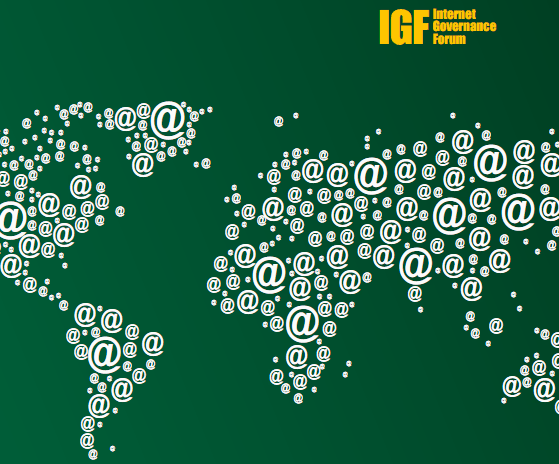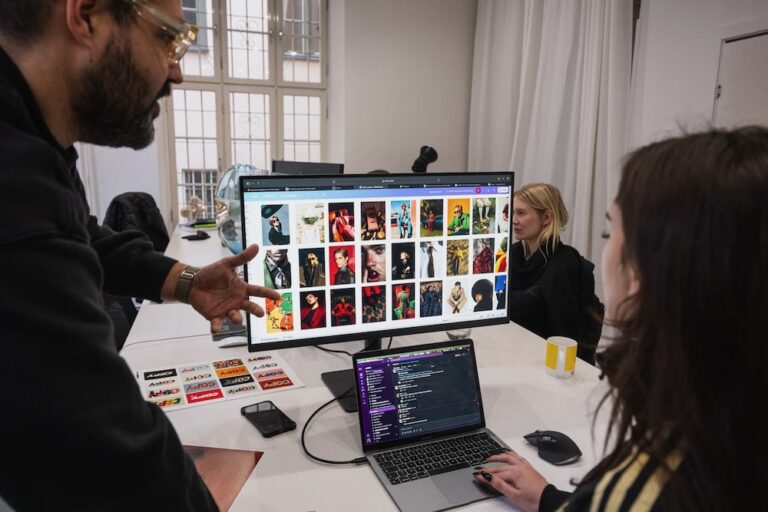IFEX lays out the top four reasons why you should care about the multi-stakeholder forum that considers who should control the Internet.
Who should control the Internet? That’s the question that gets discussed every year at the Internet Governance Forum (IGF), a UN initiative created in 2005. The IGF brings together all of the key parties with a stake in the Internet governance debate – from governments, the private sector and civil society.
Last November at the seventh annual forum in Baku, Azerbaijan, leaders of the Pirate Party faced off against Internet giants like Google and Facebook, while bloggers had the opportunity to rub shoulders with big names, including Vint Cerf, one of the “fathers of the Internet”, and Larry Strickling, the U.S. Assistant Secretary of Commerce for Communications and Information.
While the details of the proceedings rarely make front page news, the importance of the IGF should not be understated. As the 14 February deadline approaches for people to send their reflections on Baku 2012 and their suggestions for themes and format for the 2013 IGF, we lay out four reasons why the forum should matter to you.
1. You’re an Internet user, and how it’s run will affect you.
Today, there are more than 2.4 billion Internet users in the world. The Internet has proven to be a powerful tool for human rights, providing citizens with an avenue to exercise free expression. In many countries it provides an alternate space where individuals can express views not tolerated in the repressive offline environment created by their governments.
Yet the power of the Internet is not lost on governments, particularly those run by dictators and authoritarians. They are becoming ever more adept at using the Internet to censor, filter and monitor dissent, and to track down those activists using the Internet in ways that creates problems for their regimes. As the Internet’s influence continues to grow, it will become even more important to know your rights and what you might be up against.
2. You can take part in the IGF, and have an impact on the decisions taken.
The IGF is a multi-stakeholder forum, providing an inclusive and transparent environment in which to discuss Internet policy. Free expression defenders and other civil society activists are welcomed as equals alongside government representatives and huge corporations.
Open debate and a multitude of voices characterise the Internet today. The IGF works hard to ensure they also characterise the way that it is governed. The multi-stakeholder approach of the IGF ensures that one group doesn’t get to control the discussion and recommendations. Other organisations and forums, such as the International Telecommunication Union (ITU) – the UN agency responsible for coordinating global telecom networks and services – are far less participatory, often allowing only governments and large multinational organisations a place at the decision-making table.
At the IGF, you do not even need to physically attend to be included in the proceedings. On the website you can watch live and recorded webcasts of the event in six languages, follow real-time closed captioning, and participate live. In Baku, social media expanded participation in the discussion even further. According to The Internet Society and DiploFoundation, which aggregated social media content during the meeting, more than 3,000 tweets with the hashtag #igf12 were sent, reaching more than 2.8 million followers.
This is not to say that the IGF is perfect. It does not have decision-making authority, meaning that the formation of binding treaties and agreements are largely left to less transparent bodies, like the ITU. In December, for example, the ITU held the World Conference on International Telecommunications (WCIT) to update international telecommunication regulations through a process that largely excluded civil society from the discussion. Although the Secretariat claimed it would not be extending the regulations to the Internet, the resulting draft treaty contains text that does just that. Fortunately, many countries have refused to sign the treaty in its current form meaning that, for now at least, it will not be implemented.
Plus, in Baku, some key players were noticeably absent. Twitter, Yahoo! and Apple failed to make an appearance, as did Thailand and Syria, which have each faced criticism for failing to respect free expression online.
3. You can highlight related rights issues in participating host countries.
A large and inclusive international event like the IGF provides a natural forum for civil society to raise relevant rights issues with a captivated and sympathetic international audience. While some critics raised concerns about the UN’s decision to host the forum in Azerbaijan in November, many journalists and human rights activists used the opportunity to denounce Azerbaijan’s harassment and violence against bloggers, its monitoring and surveillance of online content, and the use of libel laws and other trumped-up charges to detain human rights activists and dissidents.
Unfortunately, the IGF’s Secretariat attempted to prevent the distribution of two reports highlighting Azerbaijan’s appalling free expression record, on the basis that they might upset the government. According to the Expression Online Initiative, a consortium of Azerbaijani free expression organisations, the Secretariat’s IGF coordinator advised them they would only be allowed to distribute the reports if the Azerbaijani government agreed that the content was not insulting. Despite these attempts, international organisations, such as the European Commission, the Council of Europe and the Organization for Security and Co-operation in Europe, used the forum as an opportunity to draw attention to the troubling situation in Azerbaijan.
4. You’ll stay on top of digital issues.
Panelists often highlight the most salient political, economic and social issues in the digital realm. Cutting-edge security questions, privacy concerns and copyright issues are always prominent on the agenda. Baku’s IGF was host to the most thorough discussion of human rights to date. Many IFEX members were at the forefront of these debates.
Eleonora Rabinovich from Argentina’s Asociación por los Derechos Civiles spoke about security, privacy and openness from the point of view of a rights organisation working in Latin America. Jillian York from the Electronic Frontier Foundation called for greater coordination between individuals evaluating Internet freedom initiatives. Index on Censorship’s head of advocacy, Mike Harris, chaired a debate on the private sector’s role in censorship, a topic that is getting more attention as governments like China and Syria continue to look for ways to outsource online content control to third parties.
Internet governance is not just the business of government and corporations. Policy decisions, changes in infrastructure, and privacy and security concerns relating to the Internet affect everyone. For now, most of the forums where these important decisions are discussed remain closed to all but the most powerful. On the rare occasions where we do get a seat at the table, we must use the opportunity to push for more participation and to have our voices heard.
Kieran Bergmann is the 2012 Google Policy Fellow at the Citizen Lab, Munk School of Global Affairs, University of Toronto. Bergmann’s research focuses on the use of digital technologies by civil society movements and the co-optation of these technologies by authoritarian governments to target dissidents and human rights activists.



